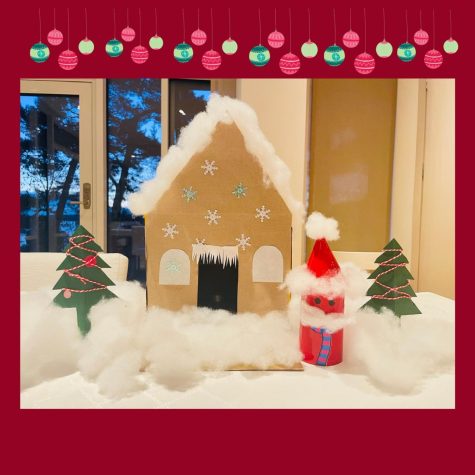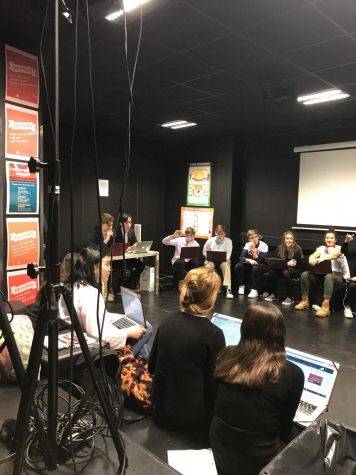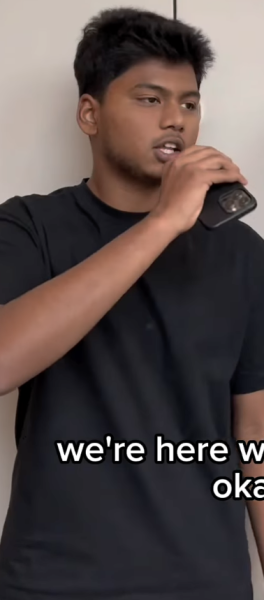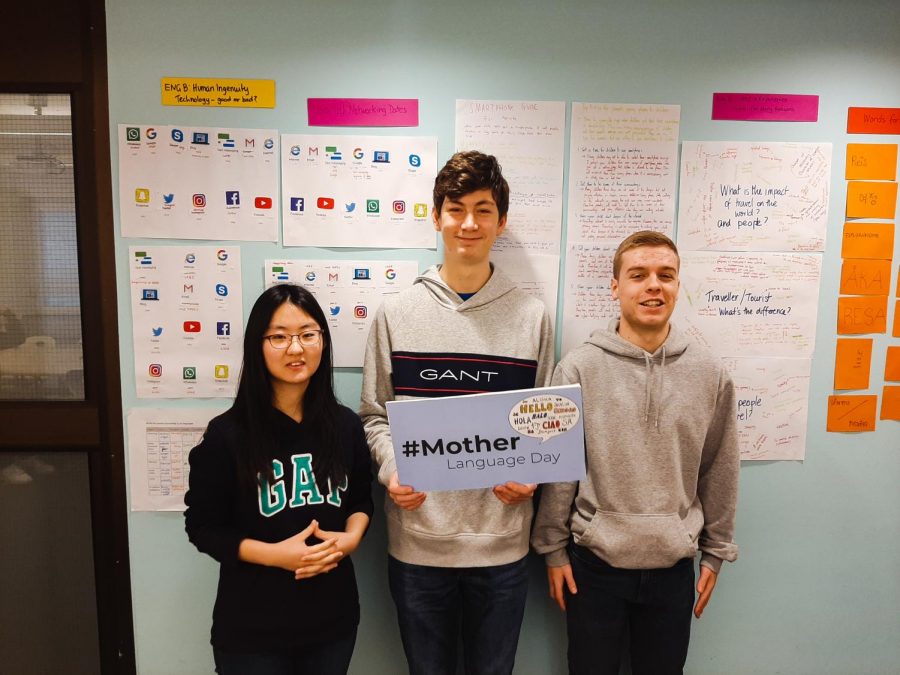What’s Your Language Part 2
Friday 21st is international Mother Language Day. At SIS we are celebrating all week with activities in class. Each day QQ will publish some of our students’ thoughts about their language.
Youngah
My name is Youngah Choi. I come from South Korea and my mother tongue is Korean. Besides English, I know a little bit of Japanese as I have learned it in Japan but I cannot read Kanji, which are the Chinese characters .
A difference between Korean and English
Korean is more complicated compared to English. The Korean alphabet is totally different from English alphabet (ㄱ,ㄴ,ㄷ,ㄹ,ㅁ) (a,b,c,d,e) Moreover, while you use capital letters when starting the sentence or names in English, we do not have a particular way of writing things in capital letters.
A similarity between Korean and English
The similarity between Korean and English is that there are some words that have similar pronunciations. For example, you pronounce chocolate as 초콜릿(choco-lit), computer as 컴퓨터 (compu-t-er) , and smartphone as 스마트폰 (smar-t-phone).
제 이름은 최영아입니다. 저는 한국에서 왔고 모국어는 한국어입니다. 영어뿐만 아니라, 일본에서 일본어를 배웠기 때문에 일본어도 조금 할 수 있습니다. 다만 간지, 한자는 못 읽습니다.
한국어와 영어의 차이점
한국어는 영어보다 어렵습니다. 한글 철자는 영어 철자와 완전히 다릅니다. (a,b,c,d,e) (ㄱ,ㄴ,ㄷ,ㄹ,ㅁ). 또한 영어는 문장을 시작할 때나 이름을 쓸 때 대문자를 쓰지만, 저희는 특별히 대문자로 글을 쓰는 방법은 없습니다.
한국어와 영어의 유사점
한국어와 영어의 유사점은 왜래어는 발음이 조금 비슷하다는 정도 입니다. 예를 들어 chocolate은 초콜릿, computer은 컴퓨터, smartphone은 스마트폰으로 발음합니다
____________________________________________________________________________________
Dan-
.שמי דן ואני מישראל. שפת האם שלי היא עברית אבל אני גם דובר אנגלית. בנוסף אני יודע גם לקרוא בערבית ולדבר קצת כי למדתי את השפה בבית הספר שלי בישראל
הבדלים בין עברית לאנגלית- בעברית בניגוד לאנגלית ישנם רק שלושה זמנים – עבר הווה ועתיד. באנגלית לעומת זאת ישנם הרבה יותר. הבדל נוסף בין השפות הוא כמות המילים בעברית ישנן 75ֿ,000 ובאנגלית יש 250,000 כמעט פי שלוש וחצי
.בנוסף לעברית אלפבית שונה וקוראים בו מימין לשמאל
…קווי דמיון בין עברית לאנגלית לעברית- השפה העברית השאילה הרבה מילים מן השפה האנגלית. לדוגמא: טלפון, טלוויזיה, פיג’מה וכו׳
My name is Dan. I come from Israel and my mother tongue is Hebrew but I can also speak English. I also know a little bit of Arabic since I learned it in my Israeli school. I can read it and understand a little bit.
The differences between Hebrew and English- in Hebrew there are only three tenses – future, present and past while in English there are many more. Another difference is the number of words. In Hebrew there are 75,000 and in English there are 250,000 which is almost three times the amount of Hebrew words.
In addition Hebrew has a different alphabet and you read it from right to left.
Similarities
Hebrew shares a lot of words with English like pajama, telephone, TV, and more…
____________________________________________________________________________________
Dylan
My name is Dylan. I’m from Spain and my mother tongue is Spanish. I can also speak Catalan, English and read French although I’m not able to speak it. I have lived 3 years in Copenhagen, Denmark and now I’m currently living in Stockholm, Sweden.
A similarity between English and Spanish
Futbol-Football; Actor-Actor; Cultura-Culture; Animal-Animal
Differences between English and Spanish
In English, there is only punctuation at the end of a sentence, whereas in Spanish when asking a question or expressing excitement there is punctuation at the beginning and at the end of the sentence. Another difference is that in Spanish nouns have a gender. Adjectives come after the noun.
Mi nombre es Dylan. Soy español y mi primera lengua es el español. También puedo hablar catalán, inglés y puedo leer francés pero no escribirlo ni hablarlo. He vivido 3 años en Copenhague, Dinamarca y ahora llevo casi un año viviendo en Estocolmo, Suecia.
Diferencias entre el español y el inglés
En inglés, solo hay símbolos de puntuación al final de una frase. En español cuando se hace una pregunta o una exclamación se pone un símbolo de interrogación o de exclamación al final y al principio de la frase. Otra diferencia es que en español los nombres tienen género y los adjetivos se ponen después del nombre.
____________________________________________________________________________________Ian
My name is Ian. I was born in Kenya. I am sixteen years old and can speak Swahili, English and a little Swedish. I have lived in Sweden for one and a half years.
One difference between Swahili and English.
In Swahili, we tell the time in terms of being the opposite of the current time. When it is 6 o’clock in English it is 12 o’clock in Swahili. 3 o’clock in English is 9 o’clock in Swahili.
One similarity of Swahili and English.
Swahili and English have the same alphabet except in Swahili we don’t have the letter X.
Jina langu ni Ian. Nilizaliwa Kenya, nina umri wa miaka kumi na sita na naweza kuongea swahili, kiingereza na lugha ya uswidi kidogo. Nimeishi nchi ya Uswidi kwa miaka moja na nusu.
Tofauti moja ya swahili na kiingereza.
Kwa swahili, tunasema saa iwe kinyume ya iliyokuwa. Kwa mfano, kama ni saa sita, kwa kiingereza itasemwa ni saa sita lakini kwa swahili itasemwa ni saa kumi na mbili.
Mfanano moja ya swahili na kiingereza.
Kwa kiingereza,
See our next article for mother language week tomorrow







